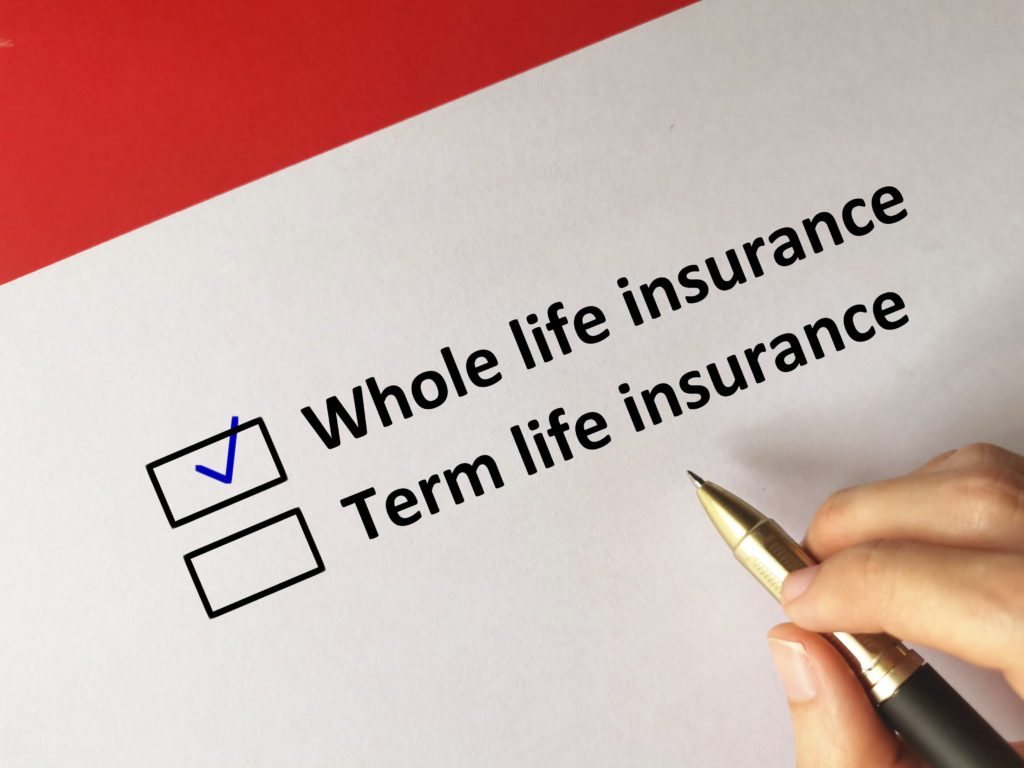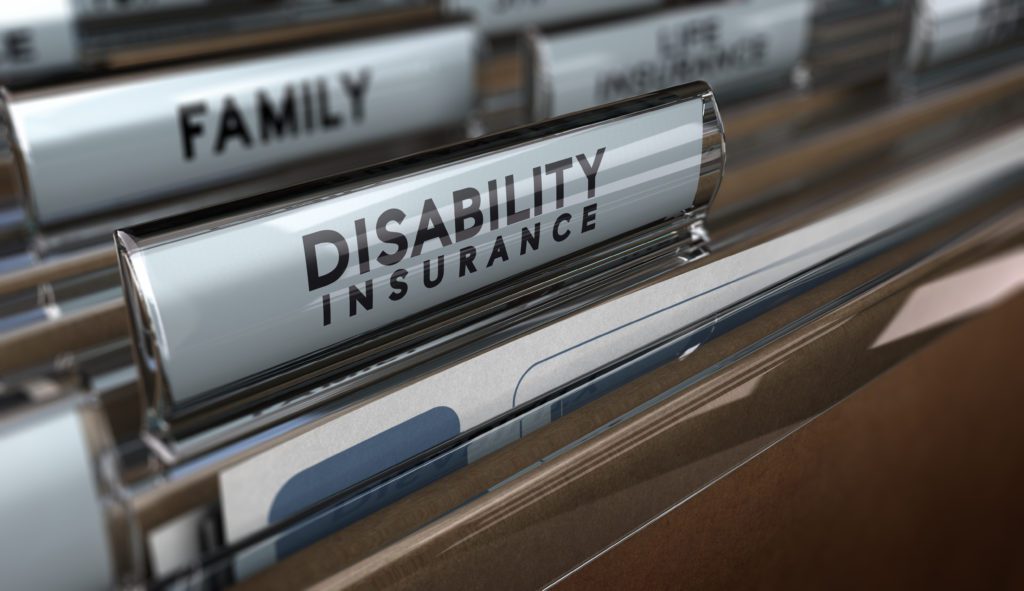1. Car insurance

There are a variety of different types of car insurance available, so it’s important to find one that fits your needs. Most people need coverage for liability and cover. Comprehensive cover is typically also available from most carriers. To get the best rates on car insurance, be sure to research all the options and compare prices.
Some benefits of having car insurance include peace of mind and reduced stress in case of an accident. The main drawback of not having car insurance is that you could face a financial burden if you’re involved in a crash.
– What is car insurance?
Car insurance is a type of insurance that helps protect you financially in the event of an accident or theft. It can cover things like your car, medical expenses, and damage to other people’s property. You typically have to pay a monthly premium, and if you have an accident or make a claim, you may have to pay a deductible as well. There are different types of car insurance coverage, and you can choose how much protection you want depending on your needs and budget. It’s important to compare different car insurance policies before you decide which one is right for you.
-How does car insurance work?
How does car insurance work? Car insurance is a form of protection that pays for damages or losses you cause to other people’s property while driving your vehicle. You are typically required by law to have car insurance, and the rates you are charged will depend on your age, driving record, and location.
What are the different types of car insurance coverage? There are three main types of car insurance coverage: liability, collision, and comprehensive. Liability coverage pays for injuries or damage to others that you may cause while operating your vehicle; collision coverage protects you from being financially responsible for damages caused when another person crashes into your car; and comprehensive Coverage helps pay for costs not covered by other types of policies, such as theft or vandalism.
How do I choose the right car insurance for me? The best way to find the right type of car insurance is to talk to an agent at a local brokerage firm. Agents can help you determine which policy options would be best for your needs and can explain all the details so that you understand what it covers and how much it will cost.
What are some common car insurance myths?
Some common myths about car insurance include:
- That all drivers need liability coverage
- That all drivers need collision coverage
- That getting uninsured motorist (UM) protection will automatically increase my rates
- That getting a discount on my premium means I’m in good shape financially
How can I save money on my car Insurance? There are several ways to save money on your car insurer: shop around online or in print publications like The Consumer Reports, Auto Buying Guide; ask about discounts available through workplace programs; compare quotes carefully before choosing a plan; make sure you understand any exclusions or limitations included in each policy; and keep up-to-date with changes in rates throughout the year by reviewing your contract every year
– What are the different types of car insurances?
Collision insurance: This type of insurance covers damage to your vehicle in the event of a collision, regardless of who is at fault. If you are hit by an uninsured or underinsured driver, this coverage can help pay for the damages your car sustains.
Comprehensive insurance: This type of insurance covers damage to your vehicle that is not caused by a collision, such as theft, weather damage, or animal strikes. It also includes coverage for bodily injury and property damage that you may cause to others while operating your vehicle. Make sure you have enough comprehensive coverage to cover all the risks associated with driving.
Liability insurance: This type of insurance covers bodily injury and property damage that you may cause to others while operating your vehicle. It does not cover damages to your own vehicle. If someone hits you while you are driving and neither party has liability insurance, they may be able to sue you for damages. Uninsured/underinsured motorist coverage: This type of coverage protects you from being hit by a driver who does not have any insurance or does not have enough insurance to cover the damages they cause. If you are involved in a crash and the other driver does not have any health or auto Insurance,your insurance company can help provide up to $20000 per person in protection against financial ruin if sued!
– What are the benefits of having a car insurance policy?
Car insurance protects you financially in the event of an accident. If you are involved in a car accident, your car insurance policy will help pay for damages to the vehicle and/or injuries that you may cause to other drivers or pedestrians.
Car insurance can help pay for repairs to your vehicle. If your car is damaged in an accident, your car insurance policy may cover the cost of repairs.
Car insurance can provide peace of mind in knowing that you are covered in the event of an accident. Many policies also include protection against theft or damage to property, so you can feel safe even if something goes wrong while you’re out driving.
Car insurance can help avoid financial responsibility for any damages or injuries that you may cause to another person in an accident. This is especially important if the other driver was at fault for the crash – without car insurance, you could be on the hook for thousands of dollars in damages!
Car insurance can save you money on your car payments if you have an accident and need to make a claim. In most cases, your policy will include coverage for property damage as well as personal injury claims made by either party involved in a crash
2. Health insurance

Health insurance is a type of insurance that covers the costs of medical care.
Health insurance can be provided by the government, an employer, or an individual health insurance company.
Health insurance plans vary in terms of the types of coverage they provide and the cost of premiums.
Some people may be eligible for government-sponsored health insurance, such as Medicare or Medicaid.
There are a variety of ways to get health insurance coverage, including through an employer, a private health insurance company, or the government
-What is health insurance?
Health insurance is a type of insurance that can help to cover the cost of medical care. There are many different types of health insurance plans, and each plan offers different coverage levels and features. Some people get health insurance through their employer, while others purchase it on their own. Health insurance can help to cover the cost of doctor visits, prescriptions, hospital stays, and more. It is important to choose a health insurance plan that meets your needs and budget.
-How does health insurance work?
Health insurance is a type of insurance that can help to cover the cost of medical care expenses. There are many different types of health insurance plans available, and each plan has its own rules and regulations. You may be able to get health insurance through your employer, or you may need to purchase it on your own. It is important to compare different health insurance plans before choosing one so that you find the best coverage for your needs and budget.
-What are the different types of health insurance?
Health insurance is a type of insurance that helps cover the cost of medical and surgical expenses. There are many different types of health insurance, including private health insurance, Medicare, Medicaid, and Tricare.
Private health insurance is typically provided by employers or through an individual policy purchased from a health insurer. Medicare is a federal program that provides health coverage for those 65 and older, as well as for some younger people with disabilities. Medicaid is a state-run program that provides health coverage for low-income individuals and families.
-What are the benefits of having health insurance?
Health insurance can help you receive preventive care, which can help prevent serious health problems from developing in the first place.
Another benefit of having health insurance is that it can help you afford necessary medical care should something go wrong.
Health insurance can also protect you financially if you are unfortunate enough to develop a serious illness or accident.
Having health insurance can give you peace of mind and a sense of security, knowing that you have coverage in case of an emergency.
3. Life Insurance

Life insurance is a type of insurance that helps protect your loved ones financially if you die.
Life insurance works by paying the beneficiary(s) your policy’s amount if you die before the policy expires.
There are two main types of life insurance: term and whole life.
Term life insurance provides protection for a set period of time, usually 10 or 20 years, while whole life offers permanent protection from death until you die or your policy lapses, whichever comes first.
You don’t need to have an exact amount of life insurance in place to receive benefits- many policies offer discounts for having more coverage than you need. Talk to your agent about what might be best for you and your loved ones!
-What is life insurance?
Life insurance is a type of insurance that provides financial protection in the event of your death. This can be useful to help your loved ones cover expenses like funeral costs, outstanding debts, or everyday living expenses. There are two main types of life insurance: term life insurance and whole life insurance. Term life insurance offers coverage for a set period of time, while whole life insurance offers lifelong coverage.
Life insurance can be an important part of your overall financial security plan. It can help you cover unexpected costs that could come up in the future, and it can provide peace of mind for your loved ones if something happens to you.
-How does life insurance work?
How life insurance works: When you buy life insurance, you are essentially agreeing to pay a set amount of money each month in the event that you die. This money is usually paid out as a lump sum, but it can also be paid out over time in periodic payments.
The different types of life insurance: There are two main types of life insurance- term and whole-life. Term life insurance covers a specific period of time (usually 10 or 20 years), while whole-life insurance protects you for the rest of your lifetime.
Why you need life insurance: Without life insurance, your family would have to pay an enormous financial burden if you died suddenly – often thousands of dollars per person.
How to choose the right life insurance for you: Because there are so many different types and levels of coverage available, it’s important to talk with an advisor about what type of coverage is best for your needs and budget. And remember – always read the policy carefully before buying it!
Top life insurance companies: There are dozens of top-rated providers available, so it’s important to do some research before choosing one. And don’t forget – always speak with an advisor if there’s anything else you want to know about buying or using life Insurance!
-Types of life insurances
Term life insurance is the most affordable option and can be a good choice for young families or those with limited budgets. Whole life insurance provides lifelong protection and also builds cash value over time that can be accessed through loans or withdrawals. It is more expensive than term life insurance but can be a good option for those who want lifetime coverage and the ability to build up cash value. Universal life insurance combines features of both whole life and term life insurance, offering lifelong protection with the opportunity to build cash value. It is more flexible than whole life insurance, allowing policyholders to adjust their premium payments and death benefit amount as needed. Variable universal life insurance offers all the features of universal life insurance but also allows policyholders to invest their cash value in different investment categories such as stocks, bonds, and mutual funds.
-The benefits of having a life policy
A life insurance policy can provide financial security for your loved ones in the event of your death. This can help to cover funeral and other final expenses, as well as give peace of mind in knowing that they are taken care of financially if something happens to you.
A life insurance policy can also help to cover funeral and other final expenses, providing some financial relief to those who are grieving.
A life insurance policy can be used as a savings or investment tool, depending on the type of policy you choose. For example, a term-life policy could be used to save for future goals while an accidental death benefit plan could be invested for growth potential.
There are many different types of life insurance policies available, so it is important to do some research to find the right one for you and your family’s needs. There are also special features available that may be beneficial depending on your lifestyle and needs.
4. Homeowners Insurance

Homeowners insurance protects your home and belongings in the event of damage or theft. It can also provide liability coverage if someone is injured on your property. Homeowners insurance rates vary depending on the value of your home and the amount of coverage you need. Be sure to shop around and compare rates before buying homeowners insurance. Make sure you understand what is covered by your policy and what is not.
-Introduction to homeowners Insurance
Homeowners insurance is a type of insurance that helps protect your home and belongings in the event of damage or theft.
Homeowners insurance typically covers the structure of your home, as well as your personal belongings.
Homeowners insurance can also help cover the costs of temporary housing if your home is damaged or destroyed.
Homeowners insurance is not required by law, but it is often required by mortgage lenders.
There are many different types of homeowners insurance policies available, so it’s important to shop around and find the one that best fits your needs.”
-Explaining how homeowners Insurance works
Homeowners insurance is a type of insurance that helps protect your home and belongings in the event of damage or loss. Homeowners insurance typically covers things like fire, wind, hail, and theft. Homeowners insurance often also covers things like water damage, mold, and personal liability. You can usually purchase homeowners insurance through your mortgage company or directly from an insurance company. Make sure to shop around and compare rates before purchasing homeowners insurance to get the best deal.
– Tips for picking the best homeowners policy
Homeowners insurance is one of the most important types of insurance you can have. It protects your home and belongings in the event of a covered loss, so it’s important to choose the policy that best fits your needs. There are many different types of homeowners policies available, so it’s important to know what is covered and what isn’t. Here are a few tips for picking the best homeowners policy:
Make sure you know what is covered and what isn’t. Check the policy carefully before you buy it to make sure you understand everything that is included.
Get quotes from different companies and compare them side by side. Compare premiums, coverages, and other features to find the perfect policy for you.
Don’t be afraid to ask questions when shopping for homeowners insurance – plenty of companies offer free customer service if you need help understanding your Policy or selecting coverage options.
5. Umbrella Insurance

Umbrella insurance is a type of insurance that covers a variety of risks, including those not covered by other types of insurance. Umbrella insurance can cover losses from both natural and man-made disasters, as well as personal injury or property damage.The cost of umbrella insurance varies depending on the coverage chosen, but it is typically less expensive than other types of insurance. If you are considering purchasing umbrella insurance, be sure to speak with an insurer to find out if this type of coverage is right for you.
You can get umbrella insurance through your bank or another provider.
Umbrella policies: what they are and do you need one
An umbrella policy is an insurance policy that provides additional liability coverage on top of your existing auto and homeowners insurance policies. This type of policy can help protect you from lawsuits and other expensive claims that may exceed the limits of your regular insurance policies, as well as provide coverage for certain types of claims that may not be covered by your regular insurance, such as defamation or invasion of privacy.
Whether or not you need an umbrella policy depends on a number of factors, including the value of your assets and how much liability coverage you already have. If you’re unsure whether or not you need an umbrella policy, speak to your insurance agent or financial advisor for more information.
Umbrella policies can also provide protection in case something happens outside the scope of your regular insurance policies – like if you are hit by a car while crossing the street unprotected by a crosswalk signal.
If an event occurs and it’s not covered under one of your existing insurance policies, having an umbrella policy can help ensure that you are fully protected financially should something go wrong.
Speak with a representative from an insurer about what kind of umbrella policy would be best for you – they will be able to give you all the details needed to make a decision about whether or not this type of coverage is right for you!
6. Renters Insurance

Renters insurance is a type of insurance that protects tenants from financial losses if their apartment or home is damaged, destroyed, or stolen while they’re not living in it. It can cover things like loss of income due to being unable to live in your home, repairs costs, and lost wages. Renters insurance usually costs around $30 per month. You can get it through your landlord, the grocery store, or some other source.
Do you need renters Insurance and what it covers
Many people mistakenly believe that their landlord’s insurance policy will cover their belongings in the event of a fire, flood, or other disaster. However, this is not the case – your landlord’s insurance policy only covers the building itself, not your personal belongings. Renters insurance is relatively inexpensive and can provide coverage for damage caused by fires, floods, and other disasters as well as theft and vandalism. It also usually provides coverage for things like dog bites and identity theft. While your landlord may require you to have renters insurance, it’s important to understand that this type of insurance is for your benefit – not theirs. Having renters insurance protects you financially in the event that something happens to your belongings while you’re renting an apartment or house.
7. Travel Insurance
Travel insurance is a type of insurance that can help cover you in the event of an emergency while traveling. This could include things like medical expenses, lost or stolen belongings, and trip cancellation.
You can usually purchase travel insurance from most major insurers, as well as some travel agencies and airlines. Make sure to read the fine print when purchasing insurance, as coverage can vary greatly between policies. In general, it’s a good idea to have at least some basic travel insurance when embarking on any kind of trip.
Should you get travel medical coverage before your next trip abroad
If you are traveling abroad, it is important to have travel medical coverage in case of an emergency. This type of coverage can include things like hospitalization and doctor visits. It is important to weigh the cost of this coverage against the potential benefits before making a decision. Travel medical coverage can cover a wide range of issues, so it is important to read the policy carefully. Sometimes it may be worth spending a little bit more for coverage that includes higher-level services.
8. Pet Insurance

Pet insurance is a type of insurance that helps cover the cost of veterinary care for your pet. There are several different types of pet insurance, and each has its own benefits and drawbacks. Some pet insurance policies will cover routine veterinary care, while others only cover emergencies. Some pet insurance policies will cover pre-existing conditions, while others will not. When choosing a pet insurance policy, it is important to consider your needs and budget
The lowdown on pet medical coverage plans
Many pet owners are unaware that there are insurance plans available to help cover the cost of their pet’s medical care. Pet medical coverage plans can help offset the cost of unexpected veterinary bills, and there are a variety of options available depending on your budget, type and breed of pet, and pre-existing conditions. Some things to consider when choosing a plan include the type and breed of your pet, as well as your budget. Keep in mind that not all insurance companies cover pre-existing conditions so be sure to read the fine print before signing up for a plan.
9 . Long Term Disability Insurance

What is long term disability insurance?
Long term disability insurance is a type of insurance that helps protect individuals who are unable to work due to a permanent injury or illness. This type of insurance can help pay for expenses such as income replacement, medical costs, and funeral expenses.
How does long term disability insurance work?
In order to be eligible for long term disability insurance, you must have been injured or become ill in a way that prevents you from working. Once you have been approved for coverage, the policy will pay your monthly benefits until you reach the age of 65 or until the policy expires, whichever comes first.
What are the benefits of long term disability insurance?
Benefits of long term disability insurance include financial protection from unexpected expenses and peace of mind knowing that you will have access to needed funds if you cannot work due to an illness or injury. Additionally, many policies offer income replacement payments which can help replace your lost wages while you are unable to work.
Who needs long term disability insurance?
Anyone may need longterm disability insurance if they become incapable of working due to a permanent injury or illness. Many people choose this form of insurance because itprovides financial protection and peace of mind against unexpected expensesalong with income replacement payments which can help replace lost wages while you are unable to work.
What long term disability covers and how to get it
Long term disability insurance covers a portion of your income if you’re unable to work for an extended period of time due to an illness or injury.
You can typically purchase long term disability insurance through your employer or as an individual policy.
Coverage and benefits vary depending on the policy, but typically it will replace 50-70% of your income.
To qualify for long term disability benefits, you must be unable to perform the duties of your occupation and have a doctor’s certification stating that you are expected to be disabled for at least 12 months (or longer).
If you’re considering purchasing long term disability insurance, make sure to shop around and compare policies to find one that best meets your needs.]